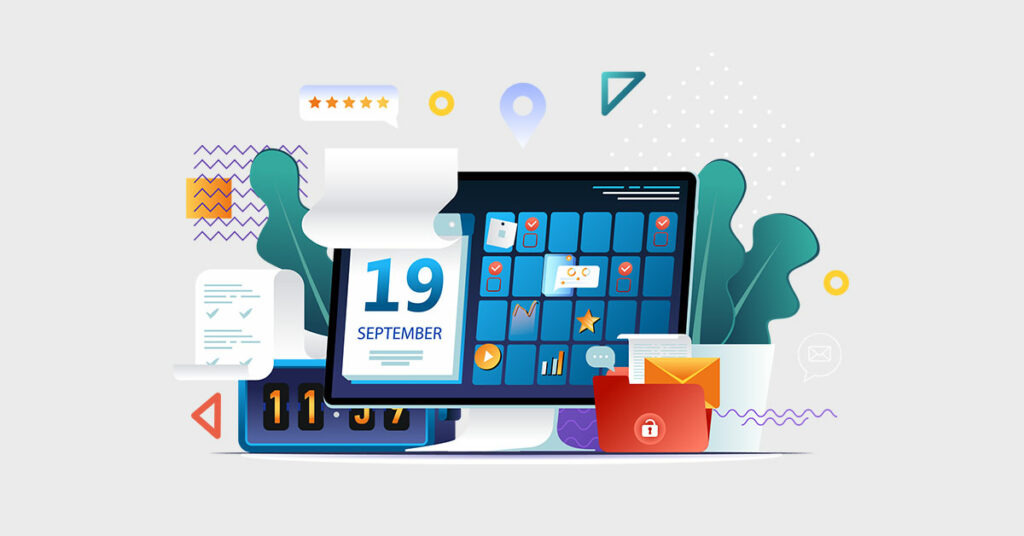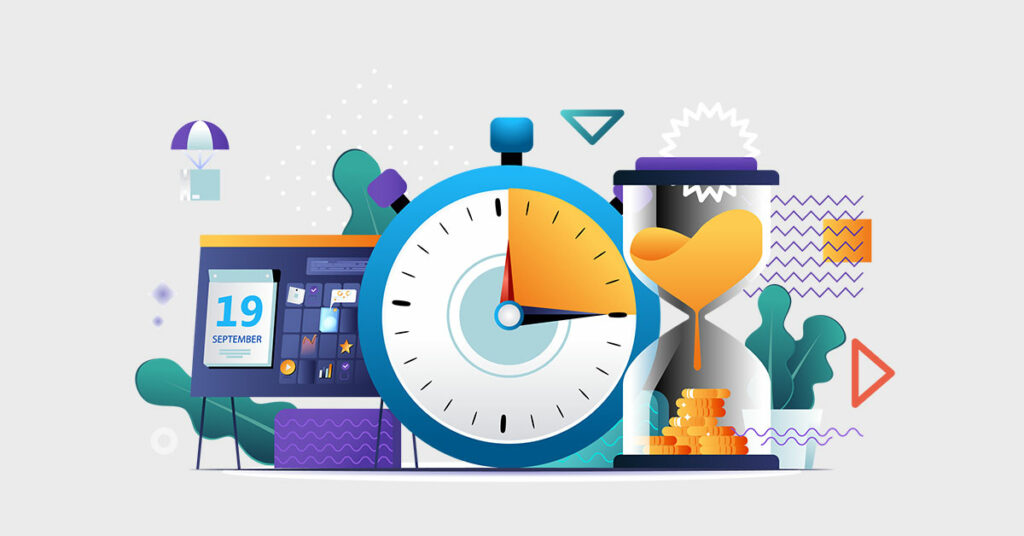How to work smarter and not harder can be summed up into four main areas: selecting tasks that fit your skillset and time frame, planning for tasks to ensure deadlines are met and productivity is maintained, finding ways to improve on your processes and then implementing those improvements, and delegating work where applicable.
In today's world, where innovation is the key to economic success, it's not enough to work hard anymore. You also have to work smart!
This means that for your business or career to succeed, you need to be able and willing to think of new ways of doing things-to innovate.
And this isn't easy because it often means going against what we've always done before, which can be challenging when there are so many other demands on our time and attention.
But if you do want your business or company to prosper in the future, then innovating will become a necessity, not an option. So how can we make this happen?
In this blog post, I'll explore how to work smarter and not harder to boost productivity.
1. Create a 'Not To-Do' List

Most of us use to-do lists, and the consensus is that they are the next best invention after the automatic washing machine.
They help provide people with a sense of achievement as they happily cross out the completed tasks.
However, a lot of time, these to-do lists can become out of control as you add more and more tasks to them.
As a result, you have to resort to multitasking, and a lot of your energy is redirected to less important activities.
To make good use of your to-do list, you should trim out all the fat and only focus on no more than five priority and challenging tasks of the day.
Focus on one task at a time and then move on to the next when it is finished.
An even better idea is to create a 'not to-do' list that notes all the non-urgent tasks that can be postponed to another day.
This can help you separate the important tasks from the unimportant ones.
Some people prefer to make both the to-do and 'not to-do' lists separately, while others like to cut down their to-do lists into a manageable chunk.
You can do whatever works best for you to be more productive and timely.
2. Measure Your Results
When it comes to measuring productivity, many businesses focus on how many hours it took to complete a task rather than what an individual accomplished in a day.
However, research from the creative artwork platform Behance, says "the pressure of being required to sit at your desk until a certain time creates a factory-like culture that ignores a few basic laws of idea generation and human nature:
(1) When the brain is tired, it doesn't work well;
(2) Idea generation happens on its terms;
3) When you feel forced to execute beyond your capacity, you begin to hate what you are doing."
One way to measure results instead of how many hours you put in is to generate a list of tasks.
This is just a simple record of everything you completed in a single day.
By looking at the list of these done tasks, you will automatically know how productive you have been and will feel more inspired and motivated once you see how much you were able to accomplish.
Additionally, measuring the results of a day can help you gauge how much work you are realistically able to do in a single day and then plan more effectively for other days.
3. Manage Your Time

Regardless of whether you are a student, an employee, or an entrepreneur, you must have heard at one time or another to manage your time.
Even though it seems easy in theory, not many people can effectively manage their time.
That's because they are not aware of a few basic rules on managing their time well.
For example, when starting your day, you need to check your to-do and 'not to-do' lists and calculate how much time each task will require.
This will allow you to set a certain time limit to complete each task. Then, all you need to do is follow it.
Another way you need to do that is to switch off all distractions. That means not replying to the messages on your smartphone and ignoring your emails for a time, as well. Also, do not multitask as it can ruin your focus.
Then, do your utmost to finish the task within the deadline.
4. Say No To Multi-Tasking

All of us have been taught to multitask. "You can get more things done this way in a less amount of time," they said. Turns out they were completely wrong.
Humans are incapable of working on multiple things simultaneously.
"People can't multitask very well, and when people say they can, they're deluding themselves," said Earl Miller, a neuroscientist at MIT. "The brain is very good at deluding itself."
All multitasking does is switch our attention from one task to another very quickly so that we can't focus on any single task.
Plus, we put our brain on overdrive, so it struggles to cope with the constantly changing attentions.
Hence, the result is heightened stress levels in people who are constantly running to do multiple things at a time.
5. Automate Tasks
Here, I'm not talking about using technology to make tasks automatic, though that works very well.
I'm talking about building routines and habits that, over time, do not require a lot of thinking on one's part and become almost second nature to do.
"It turns out we each have one reservoir of will and discipline, and it gets progressively depleted by any act of conscious self-regulation," said Tony Schwartz in a Harvard Business Review.
That means that if you spend too much time making decisions on small and unimportant things, you will be left with less will and self-control to make all the challenging decisions.
6. Change Your Perspective about Failure
Edison once said that "ten thousand failures" resulted in the ultimate success of the first working light bulb.
Theodore Roosevelt believed in the same philosophy when he said, "Nothing in the world is worth having or worth doing unless it means effort, pain, difficulty."
This means that if you are trying to achieve something, you will encounter failure at one point or another.
However, this should not be your cue to give up. Instead, it would help if you learned to 'x-ray' the failure and know what caused you to fail in the process.
This can prevent you from making the same mistakes over and over again and wasting time.
On the other hand, failure also gives you ample opportunity to learn new things, which you can implement in future projects.
The difference between great people and ordinary ones is that they keep moving towards their end goals even while others have given up.
7. Ask for Help
Don't let your pride get in the way of asking for help. If you sit there and struggle to do everything on your own or sit there in silence, you will lose precious time and will have to place yourself under undue stress.
If there is a job that cannot be easily done alone, you should be transparent and open with your team about it. Communication is key.
So, for example, If you are working on a project, you should foresee how much workload will be required and how much you will be able to manage.
That way, you won't get a nasty surprise when you realize you won't be able to meet your deadline.
8. Minimize Stress

Stress is the biggest enemy of productivity. Stress can cause physical, behavioural, and emotional issues and negatively affect your energy levels, motivation, attentiveness, and physical health and wellbeing.
It can cause you to burn out by literally burning your energy reserves and causing you to get into a rut.
The good thing is that alleviating stress can have a positive effect on your productivity.
According to the American Psychological Association, "the most effective stress-relief strategies are exercising or playing sports, praying or attending a religious service, reading, listening to music, spending time with friends or family, getting a massage, going outside for a walk, meditating or doing yoga, and spending time with a creative hobby."
However, some activities can also increase your stress levels, like drinking, smoking, binge-eating, and watching TV for more than two hours.
Another great stress management technique is to plan for your work the night before.
This way, you know what to expect in the morning, and by sticking to your routine, you can get the job done in no time.
Deeper Dive:
4 Daily Habits For Your Mental Health
6 Daily Habits That Can Help You Manage Stress
Habits You Need for Success as a Female Entrepreneur
10 Achievable Habits you can Create to Stop Overthinking
9 Simple Habits That Can Help You Achieve More With Less Stress

Final Thoughts on how to work smart and not harder
The key to greater productivity lies in working smarter, not harder. By working smarter, you can save your time, resources, energy, and money for all things in life, including your life goals, personal life, relationships, and health.
It is time you quit working overtime and start working smarter!
Leave your comment below, and let's take this conversation further.
More Resources
5 Studies on Productivity That Will Change Your Life
7 Scientific Studies That Reveal the Secrets to Max. Productivity





